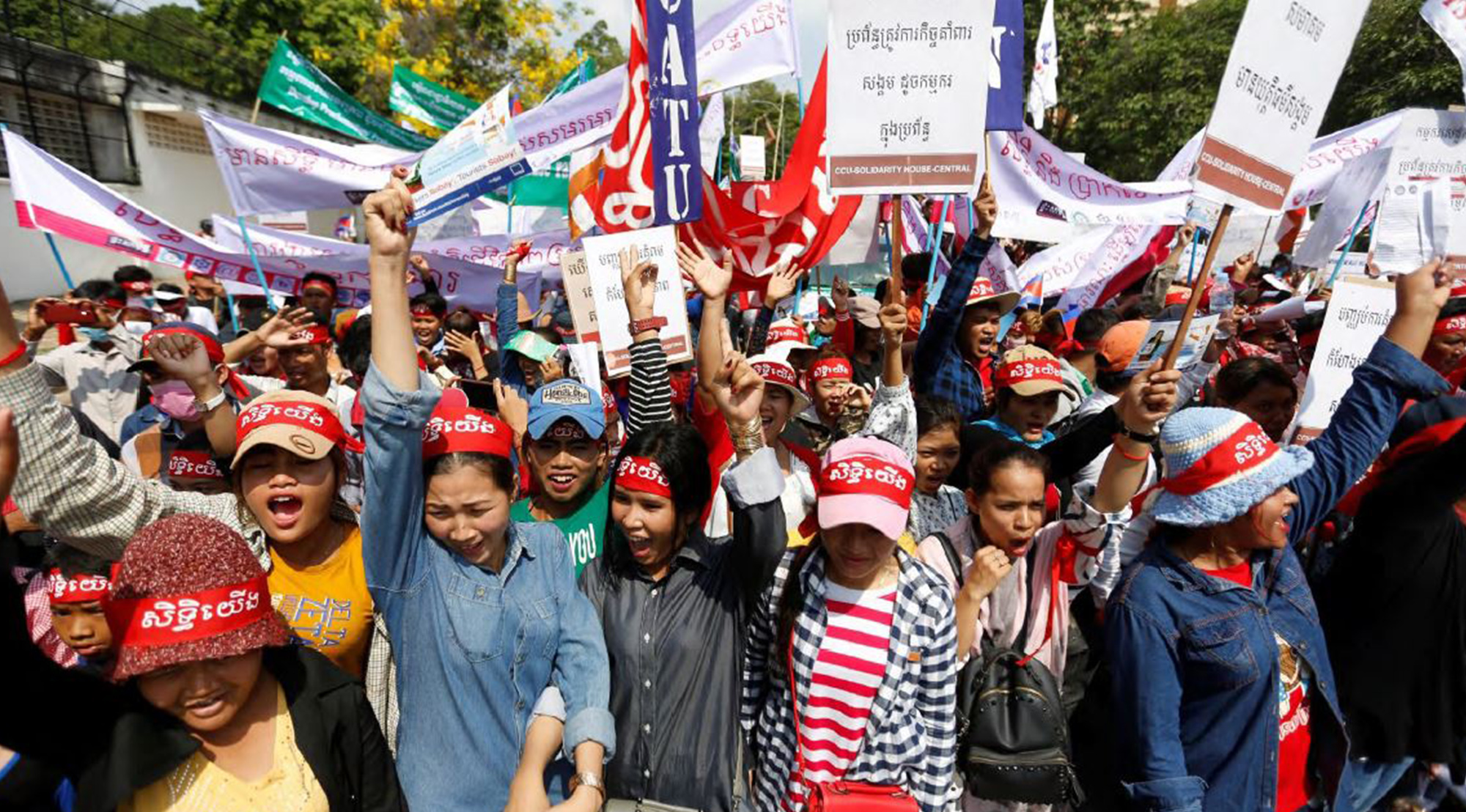Supporters of neoliberal economic policy are convinced that liberalizing and deregulating the market maximizes economic potential and prosperity for everyone on both a national and international scale.
However, this is not the case in reality. Despite promises to the contrary, countries of the global south cannot free themselves from poverty and misery. The work people do there, be it service work, production, agriculture, or mining is often poorly paid, degrading, and dangerous, and labor rights are violated.
Child labor on West African cotton fields and in gold mines, slave-like employment conditions in Asian factories, wage slavery on Indonesian and Malaysian palm-oil plantations, the violation of fundamental labor rights, in particular for women in textile factories in Southeast Europe, expulsions of smallholders in South America as a result of the mining projects of major European companies, or the exploitation of migrants in the agricultural sector – the list goes on and on.
As consumers in Switzerland, we can respond to these unfair working conditions, albeit to a limited extent, by showing solidarity, such as by making conscious purchase decisions or putting pressure on certain corporations to effect changes in supply chains. Swiss corporations are under no legal responsibility to improve the working conditions in production countries, at the very least. Not yet anyway, as the Responsible Business Initiative wants to change this: In future, corporations based in Switzerland are to be liable for human rights violations or environmental pollution produced by their subsidiaries.
However, it is not just globalization that is driving exploitation. Many people who work outside of global supply chains are sometimes even more vulnerable to exploitative conditions: this particularly applies to employees in the informal sector, such as street traders and domestic help, but also to contract workers and employees in micro-enterprises.
Work should not degrade people, it should not make them ill, and it should allow them to lead a self-determined and autonomous life. The International Labour Organization’s Decent Work Agenda therefore designates the following factors as basic requirements for fair work: decent wages, workplace safety, and social insurance for workers and their families, the possibility to form workers’ unions, participation and cooperation in the further development of the working environment, and equal opportunity and equal treatment. This is based on internationally binding rights and the Universal Declaration of Human Rights, which guaranteed the right to fair work (Article 23). Goal 8 of the UN’s Sustainable Development Goals (SDGs) also explicitly calls for decent work for all.
Solidar Suisse is committed to ensuring fair working conditions and is thus doing its bit to promote fairer economic development and globalization. Workers being able to organize themselves into trade unions or independently of trade unions is key to the achievement of these goals. Solidar supports activists and organizations on site to help people collectively mobilize and fight against exploitation, such as in the healthcare sector in Kosovo, on plantations in Bolivia, or in textile factories in Cambodia. Working with partners on the ground, Solidar directly intervenes in local markets to further develop and strengthen local production and supplier chains, such as in honey refinement in Burkina Faso or in the certification of cocoa in Latin America. Solidar Suisse also ensures better access to the labor market, for example by providing literacy training or supporting public vocational schools. Training in traditional professions such as the metal or construction sector or in the freelance informal sector to become a solar-panel fitter or a compost fertilizer producer can also open up new prospects. Young people, especially young women, in rural and semi-urban areas in particular benefit from the various approaches to formal and informal training.


